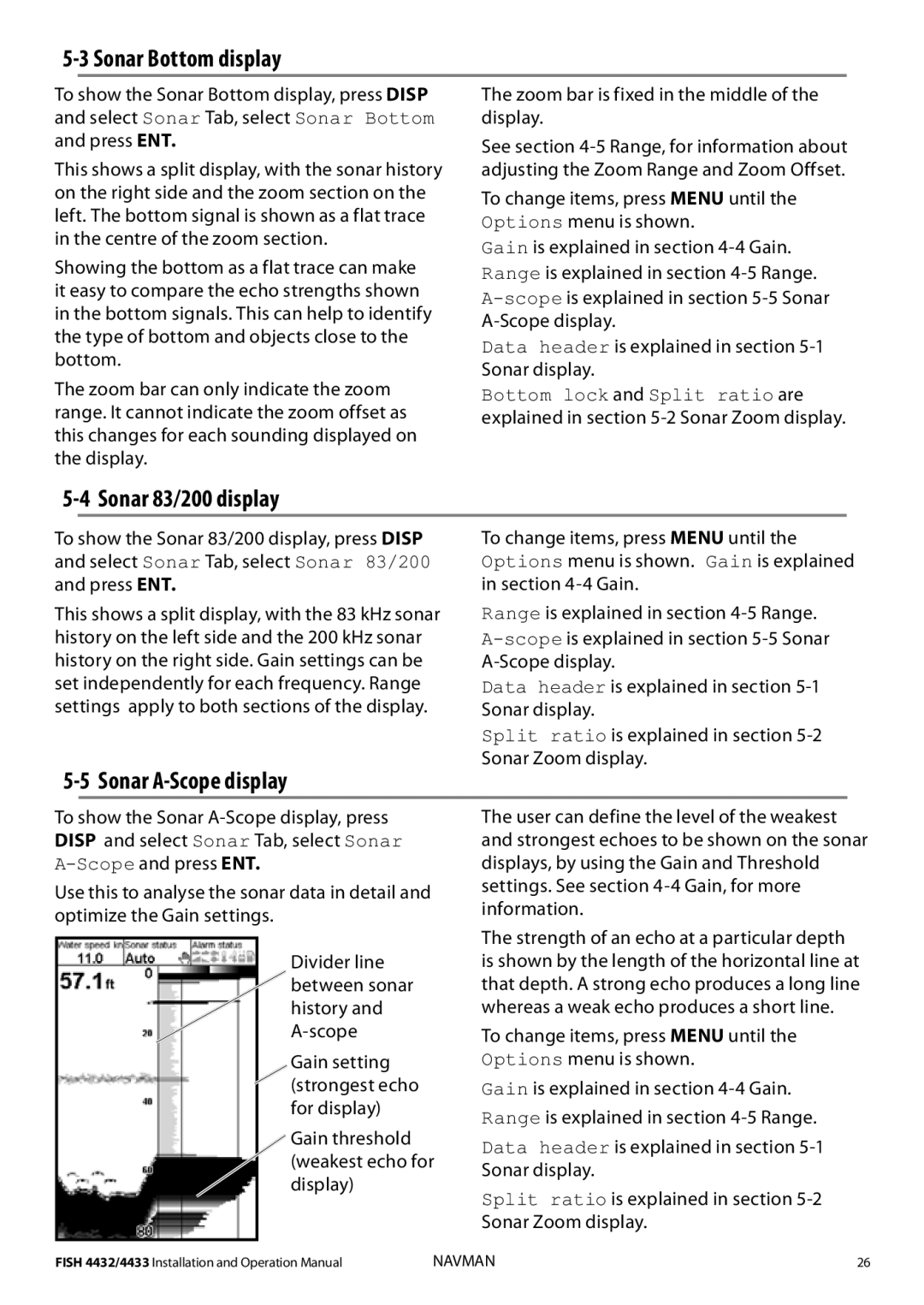
5-3 Sonar Bottom display
To show the Sonar Bottom display, press DISP and select Sonar Tab, select Sonar Bottom and press ENT.
This shows a split display, with the sonar history on the right side and the zoom section on the left. The bottom signal is shown as a flat trace in the centre of the zoom section.
Showing the bottom as a flat trace can make it easy to compare the echo strengths shown in the bottom signals. This can help to identify the type of bottom and objects close to the bottom.
The zoom bar can only indicate the zoom range. It cannot indicate the zoom offset as this changes for each sounding displayed on the display.
The zoom bar is fixed in the middle of the display.
See section
To change items, press MENU until the Options menu is shown.
Gain is explained in section
Data header is explained in section
Bottom lock and Split ratio are explained in section
5-4 Sonar 83/200 display
To show the Sonar 83/200 display, press DISP and select Sonar Tab, select Sonar 83/200 and press ENT.
This shows a split display, with the 83 kHz sonar history on the left side and the 200 kHz sonar history on the right side. Gain settings can be set independently for each frequency. Range settings apply to both sections of the display.
5-5 Sonar A-Scope display
To change items, press MENU until the Options menu is shown. Gain is explained in section
Range is explained in section
Data header is explained in section
Split ratio is explained in section
To show the Sonar
Use this to analyse the sonar data in detail and optimize the Gain settings.
Divider line between sonar history and
Gain setting (strongest echo for display)
Gain threshold (weakest echo for display)
The user can define the level of the weakest and strongest echoes to be shown on the sonar displays, by using the Gain and Threshold settings. See section
The strength of an echo at a particular depth is shown by the length of the horizontal line at that depth. A strong echo produces a long line whereas a weak echo produces a short line.
To change items, press MENU until the Options menu is shown.
Gain is explained in section
Range is explained in section
Data header is explained in section
Split ratio is explained in section
FISH 4432/4433 Installation and Operation Manual | NAVMAN | 26 |
